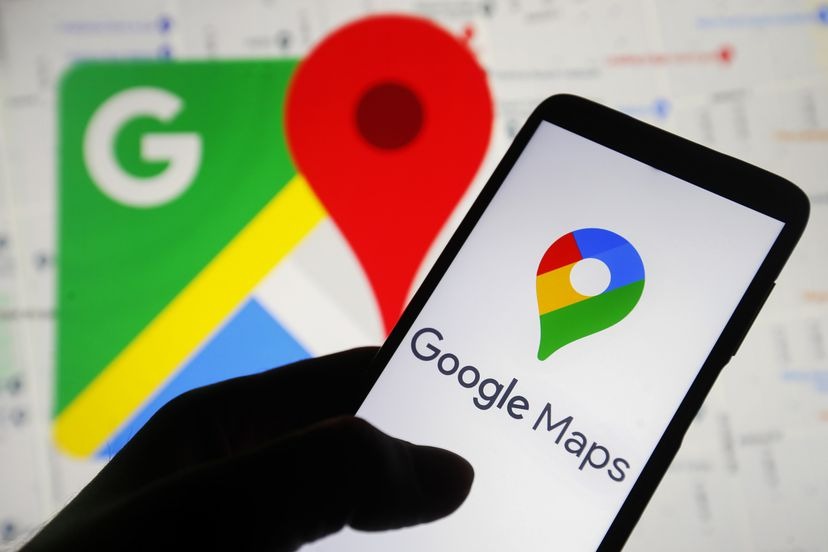Remember that unsettling scene in a movie where police track your every move through your phone? Well, thanks to a recent update from Google Maps, that dystopian nightmare might be inching closer to reality. But hold on, there’s a twist! Google is pushing back against the use of controversial “geofence warrants” by law enforcement, aiming to keep your location data out of their prying eyes.
Geofence Warrants: Big Brother’s Creepy Cousin
Imagine this: police obtain a warrant based on your phone’s presence in a specific area during a certain time. This “geofence warrant” allows them to access a vast pool of location data from tech companies like Google, potentially revealing your movements, contacts, and even daily routines. Sounds scary, right?
Google Says No to Location Dragnets
But Google isn’t taking this lying down. The new update to Google Maps will store users’ location history locally on their devices instead of in the cloud, making it significantly harder for law enforcement to access it through geofence warrants. This is a major blow to the practice, potentially throwing a wrench in the gears of mass surveillance.
A Victory for Privacy, or a Temporary Truce?
This move by Google is a win for privacy advocates and anyone concerned about the government’s ever-growing appetite for our data. However, it’s important to remember that this is just one step in a long fight. Law enforcement agencies might try to find workarounds, and the legal battle over geofence warrants is far from over.
The Stakes are High: Your Location, Your Life
Think about it. Your location data isn’t just a map of your coffee runs and grocery store trips. It’s a window into your life, your relationships, your habits, and even your political beliefs. In the wrong hands, it can be used for discrimination, harassment, and even targeted persecution.
The Fight for Our Digital Rights Continues
Google’s move is a positive step, but it’s not enough. We need comprehensive legislation that protects our location data and limits the use of geofence warrants. We need to hold tech companies accountable for how they collect and store our data. And most importantly, we need to be vigilant, informed, and vocal about our right to privacy in the digital age.
Remember:
- Google Maps update stores location history locally, making it harder for law enforcement to access it through geofence warrants.
- This is a significant victory for privacy advocates, but the fight against mass surveillance continues.
- Your location data is sensitive information, and we need strong legal protections to prevent its misuse.
- Stay informed, be vocal, and demand your right to privacy in the digital world.
Google’s stance against geofence warrants is a beacon of hope in the fight for our digital rights. But let’s not get complacent. This is just the beginning of a long journey towards a future where our location data is our own, and not a tool for government overreach. Let’s keep the momentum going, one privacy setting at a time, and ensure that our digital footprints don’t lead Big Brother to our doorstep.
Together, we can ensure that our maps lead us not to surveillance, but to a future where privacy is respected and protected.
What’s at Stake: Why Location Data Protection Matters
Your location reveals far more about you than a pin on a map. It provides intimate insight into nearly every aspect of your life – that’s why safeguarding access is so vital. Beyond personal privacy, some key reasons location data protection matters:
Preventing Discrimination
Location history could allow inferences about protected characteristics like religion, health, or politics, enabling discrimination.
Securing Physical Safety
Stalkers or domestic abusers tracking victims via location data poses extreme risks. Strong protections are crucial.
Upholding Civil Liberties
Unfettered location tracking infringes upon civil rights and civil liberties that citizens are guaranteed.
Maintaining Checks & Balances
Limiting location data access reinforces necessary oversight of law enforcement powers.
Ongoing Threats: Attempts to Access Location Data
While Google’s move limits one avenue for location data access, concerning efforts to obtain this sensitive information continue through:
“Tower Dump” Court Orders
Law enforcement requests all devices near cell towers, potentially exposing thousands of innocent people’s data.
Purchase from Data Brokers
Authorities buy aggregated location datasets from shady brokers, circumventing tech companies and oversight.
Direct Requests to Tech Firms
Police make requests to tech companies for location data, which are often approved without sufficient scrutiny.
Third-Party App Access Exploits
Malicious actors craft apps that trick users into granting location data access, then sell the data.
Ongoing Precautions: How to Protect Your Location
While legislation and oversight play crucial roles, individuals can also take steps to safeguard their location privacy:
- Review app permissions settings frequently and be selective in granting location access
- Disable location services features unless absolutely necessary
- Use VPNs or other tools like Apple’s Private Relay to obscure location
- Favor encrypted messaging apps that offer geofencing alerts when screenshots are taken
Staying vigilant about controlling location sharing remains important even as privacy protections expand – it’s one key way we can protect ourselves.
The Road Ahead: Collaboration for Privacy Progress
Securing location privacy in the digital age demands a multilayered approach with all stakeholders at the table – from tech companies and lawmakers to academics and concerned citizens. But this challenge also represents an opportunity: setting precedents and frameworks for balanced oversight of emerging technologies while safeguarding civil liberties and human rights. By working together, we can build consensus around solutions that allow innovation while giving users more control over their data.










Add Comment